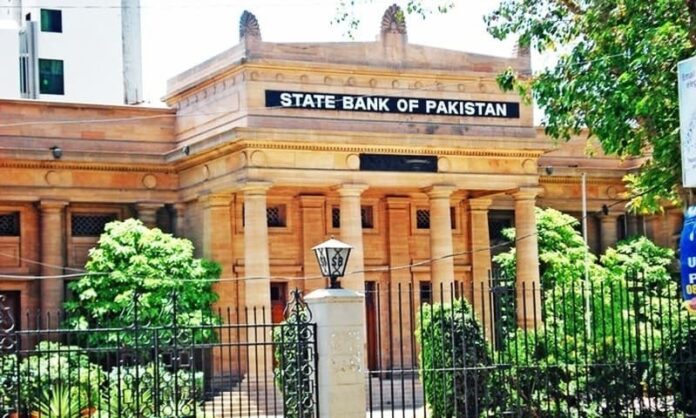–Average headline inflation projected to remain broadly unchanged at 11-12pc
–SBP says stabilisation efforts yielded improvements during the first half of FY20
KARACHI: The State Bank of Pakistan (SBP) said on Tuesday that the country’s GDP growth projections for fiscal year 2020, currently at 3pc, are likely to contract further in the coming months.
According to the SBP’s ‘Second Quarterly Report for fiscal year 2020 on The State of Pakistan’s Economy’, achieving this year’s real GDP growth target of 4pc had been unlikely, as the agriculture sector’s performance was lower than expectations, while export-driven growth had not been sufficient to compensate for subdued domestic market activity.
However, according to the report, the stabilisation efforts and regulatory measures yielded notable improvements in several sectors during the first half of fiscal year 2020.
“Broadly speaking, the current account deficit contracted to a six-year low, foreign exchange reserves increased, the primary budget recorded a surplus, and core inflation eased,” the report stated. “Export-based manufacturing also showed signs of traction, and construction activities picked up, indicating that the economy was on the path of recovery.”
The SBP further said that progress under the IMF programme remained on track and the credit rating agencies maintained their stable outlook for Pakistan during the review period.
Most of the improvement in the current account stemmed from a reduction in the import bill, with some contribution from export earnings. Depressed international commodity prices had partially offset the gains in export volumes offered by a competitive exchange rate.
Foreign direct investment (FDI) inflows were also about the same level as last year.
The report emphasized that reforms needed to be prioritised to attract and sustain higher FDI inflows into the country.
The SBP’s projections for the average headline inflation for fiscal year 2020 remained broadly unchanged at 11-12pc. Even though food inflation surged steeply in both quarters, it was mostly due to supply disruptions, which the SBP argued are typically seasonal, and core inflation did not rise by a commensurate amount.
The fiscal deficit as a per cent of GDP reduced from 2.7pc in the first half of fiscal year 2019, to 2.3pc in the first half of fiscal year 2020. The primary surplus surpassed the target, and revenue growth was substantially higher.
The reversal of earlier tax concessions and implementation of new levies helped increase the revenue collection, even though the overall revenue target was missed. Policy measures such as an increase in GST on petroleum products, increased excise duty on cement and cigarettes, upward revision in salary slabs, adjustments in power tariffs, end of preferential treatment for certain sectors helped in higher tax collection.
According to the SBP, there was a need to increase documentation in the economy.
The agriculture sector, however, did not do so well. According to the report, the sector could not cope with challenges like constrained water availability and climate change. The cotton crop, in particular, was hit by unfavorable weather, pest attacks and low water availability. The decline in cotton production is also likely to undermine the agriculture sector’s performance in fiscal year 2020.
The report also had two special sections. The first was dedicated to the state of competition in the domestic economy. This is part of the SBP;s stabilization measures, and further structural reforms.
“The overall competitive environment in Pakistan has been unfavorable for productivity enhancement and growth…the role of the public sector should generally be limited to addressing market failures through structural reforms, and only providing broad institutional support to businesses,” the SBP said.
In the second section, the SBP was also concerned that despite improvements in Pakistan’s economy, it was now subject to risk from the spread of COVID-19.
“The spillovers from the global economy and the infection- containment measures in the country are bound to weaken the economic activity and consumer demand and adversely impact supply. As the situation is extremely fluid and highly uncertain, the economic outlook remains subdued compared to the pre-outbreak estimates,” said the SBP.
The SBP listed some steps it has taken, such as the Monetary Policy Committee cutting the policy rate by 225 basis points in March. It also listed 12 different measures the SBP had taken to mitigate any adverse impact, such as relief to borrowers for one year on principal loan repayments, concessional financing for businesses, and concessional financing to hospitals.




